Junkyard Gem: 1995 Kia Sephia RS

Kia is a well-established brand in the United States today, with Kias seen all over our roads. The Kia brand only showed up here just about 30 years ago, though, and the very first ones were Sephia sedans. Here’s one of those now-rare cars, found in a Denver-area self-service car graveyard recently.
I’d been looking for a discarded 1994-1996 Sephia for years, but they were cheap and disposable cars and most got crushed long ago; the second-generation (1997-2003) models are much easier to find today. Then I got a tip from Mason, the knowledgeable aficionado of unappreciated Centennial State iron who runs the excellent Unloved Cars of Colorado Instagram account, about a Sephia with a 1994 build date in a local boneyard. He’d seen a listing for this car a bit earlier when it was up for sale on Facebook Marketplace and saved screenshots. Yes, a running, driving car with not-so-expired tags and just a few minor problems wouldn’t sell even with such a low price tag! What’s wrong with the world?
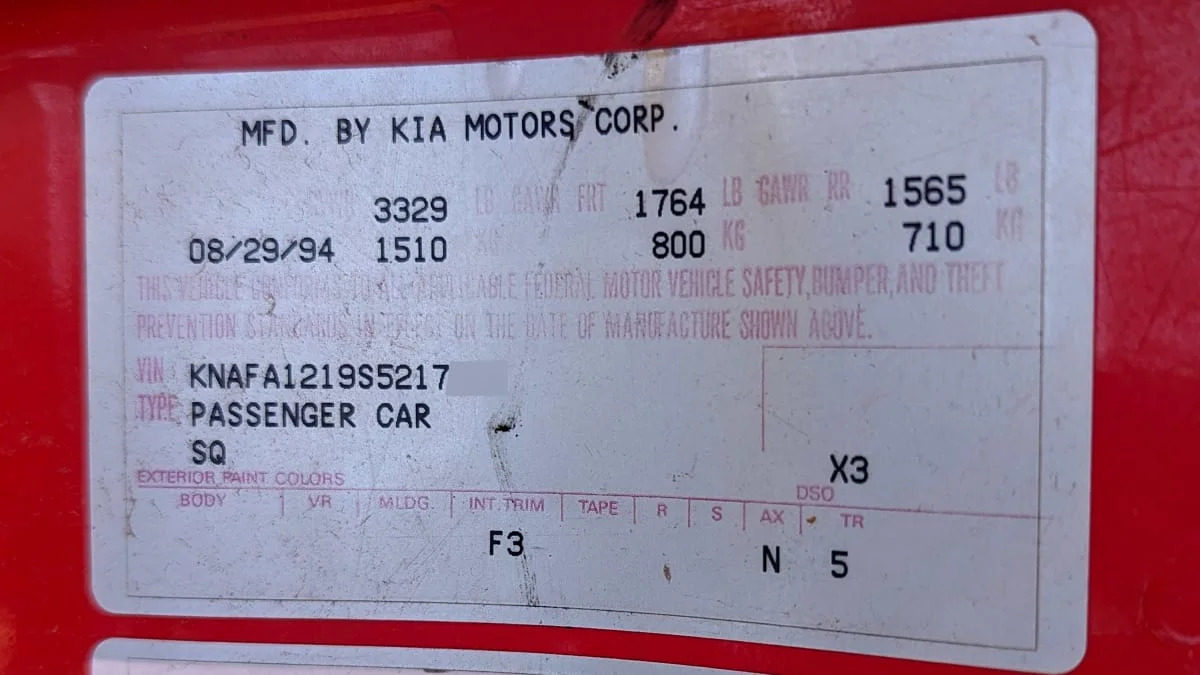
The build tag shows that it rolled out of the Hwaseong plant in August 1994, which was six months after four dealerships in Portland, Oregon, began selling the Sephia. Other Kia dealerships opened up elsewhere in the Western United States later that year, and today’s Junkyard Gem was sold during that period. Those of you who know old Fords might notice that the build tag sticker on the driver’s door is nearly identical to those applied to Dearborn machinery from the late 1970s through the early 1990s, and there’s a good reason for that.
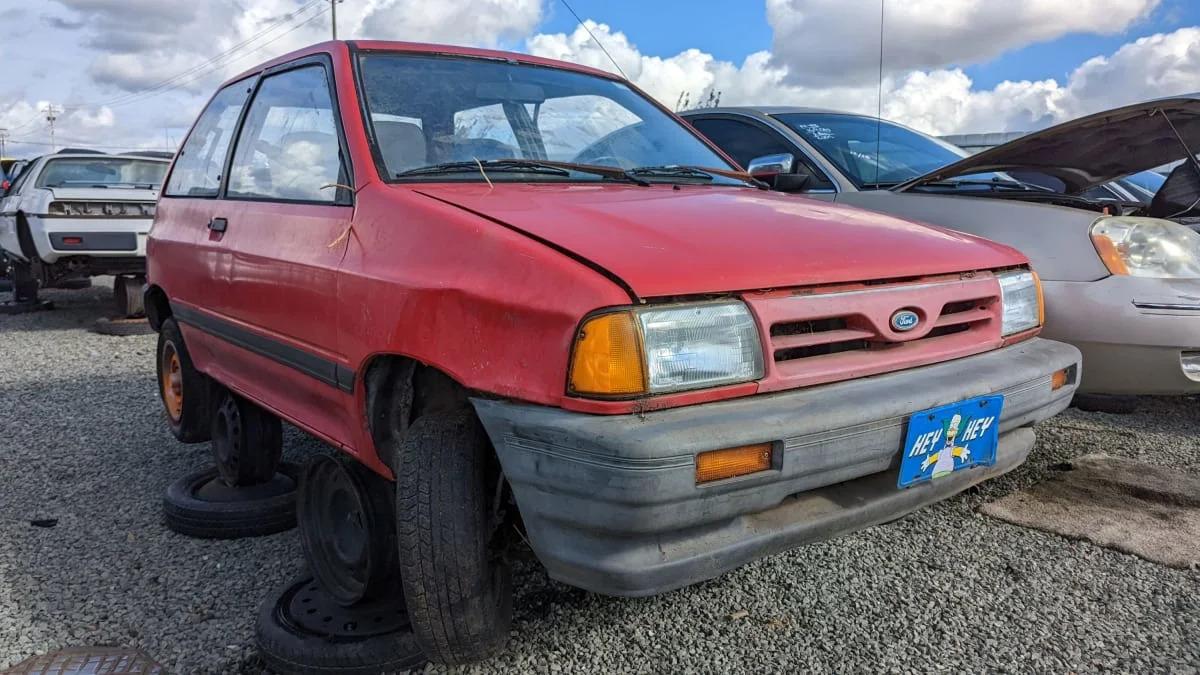
Kia Motors got started in the car business by license-building vehicles in South Korea for other companies, mostly Mazdas but also Peugeots and Fiats. Then Ford partnered with Kia to build an Americanized version of the Kia Pride, itself based on the Mazda 121, which was sold here as the Ford Festiva for the 1988 through 1993 model years (and, after the Pride entered its second generation, as the 1994-1997 Ford Aspire).
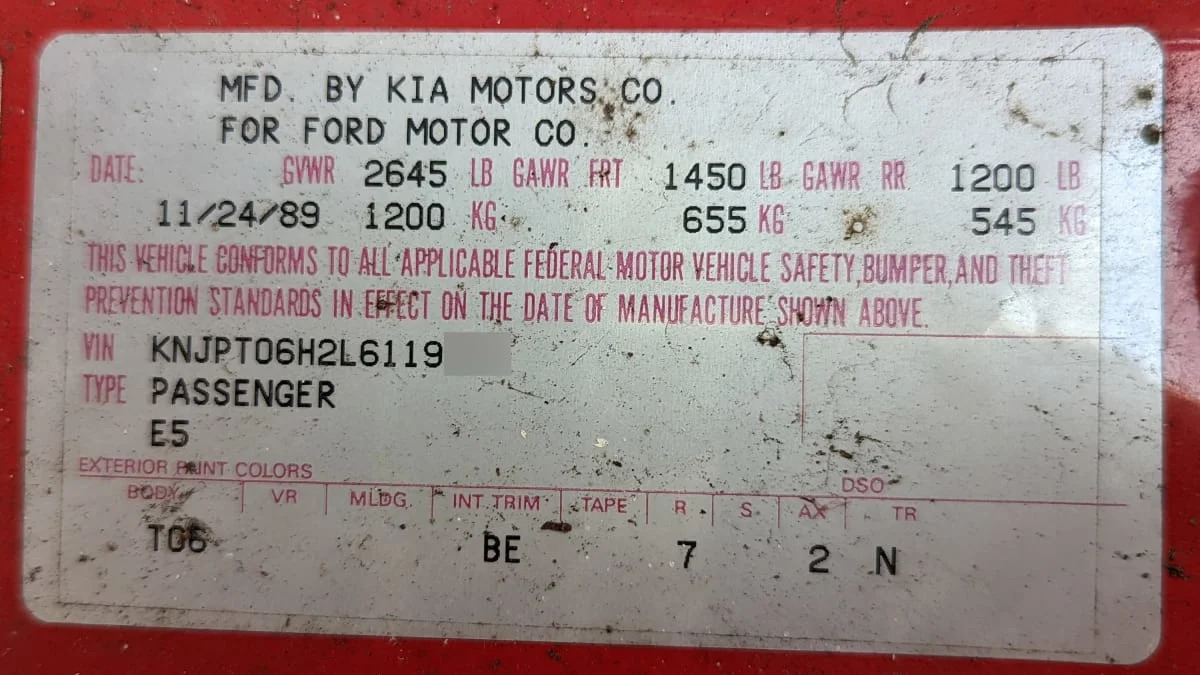
Here’s the build tag for a 1990 Festiva, which uses exactly the same sticker as the ones that went onto 1990s Kias. Why re-invent the wheel decal, even if Ford’s DSO codes are totally meaningless on a Kia?
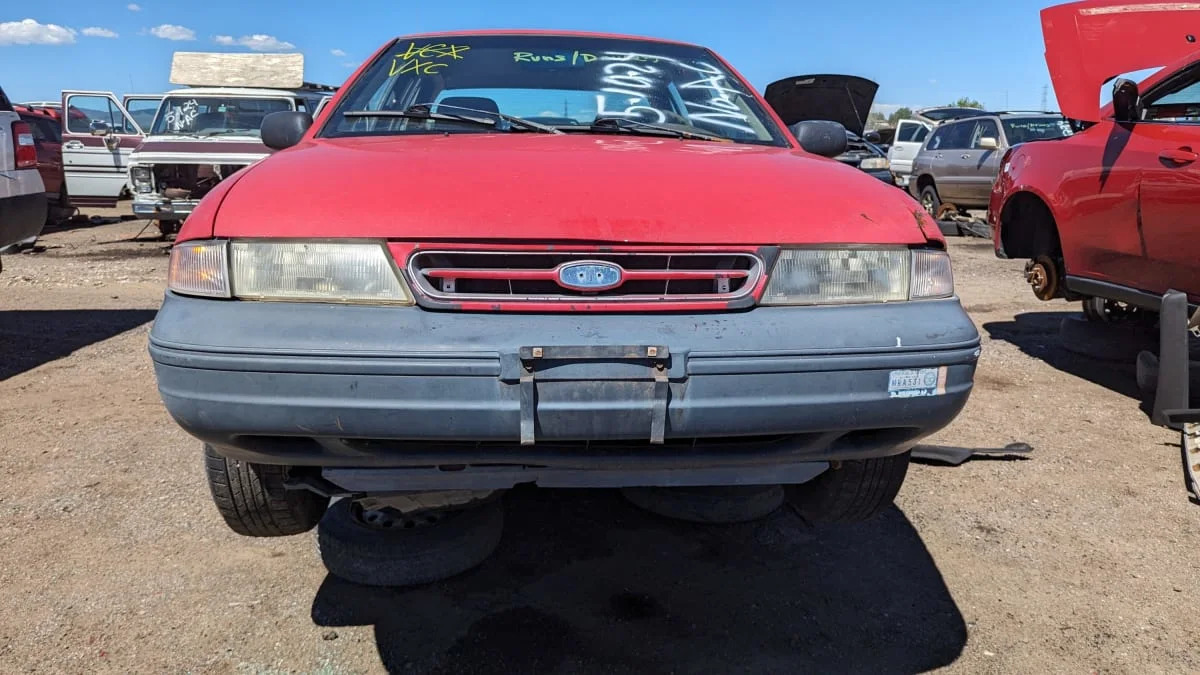
The Kia was joined by the Sportage mini-SUV later in 1995. Then Kia Motors declared bankruptcy in 1997 and was gobbled up by the Hyundai Motor Company in 1998. After that, Kias became increasingly Hyundized.
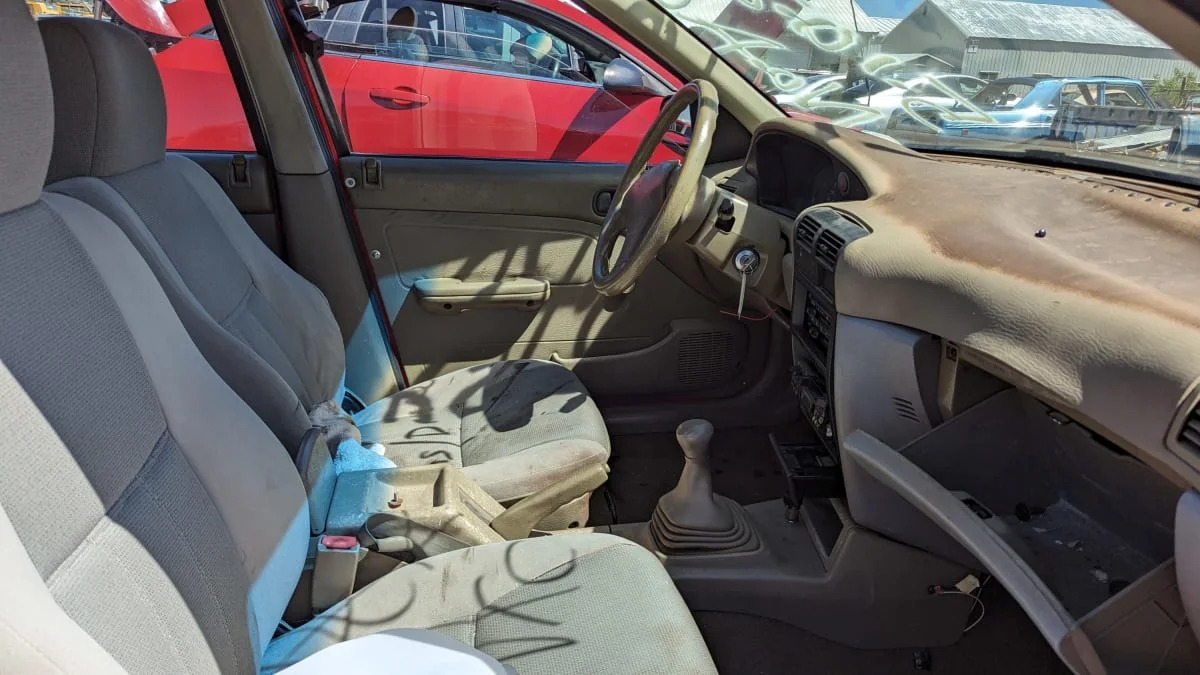
How cheap was this car? It’s a base-model RS with manual transmission, so its MSRP would have been $8,495 (about $17,722 in 2024 dollars). The 1995 Hyundai Elantra sedan started at $10,199 ($21,277 after inflation), while the base Saturn SL sedan (which almost nobody bought) could be had for as little as $9,995 ($20,951 today).
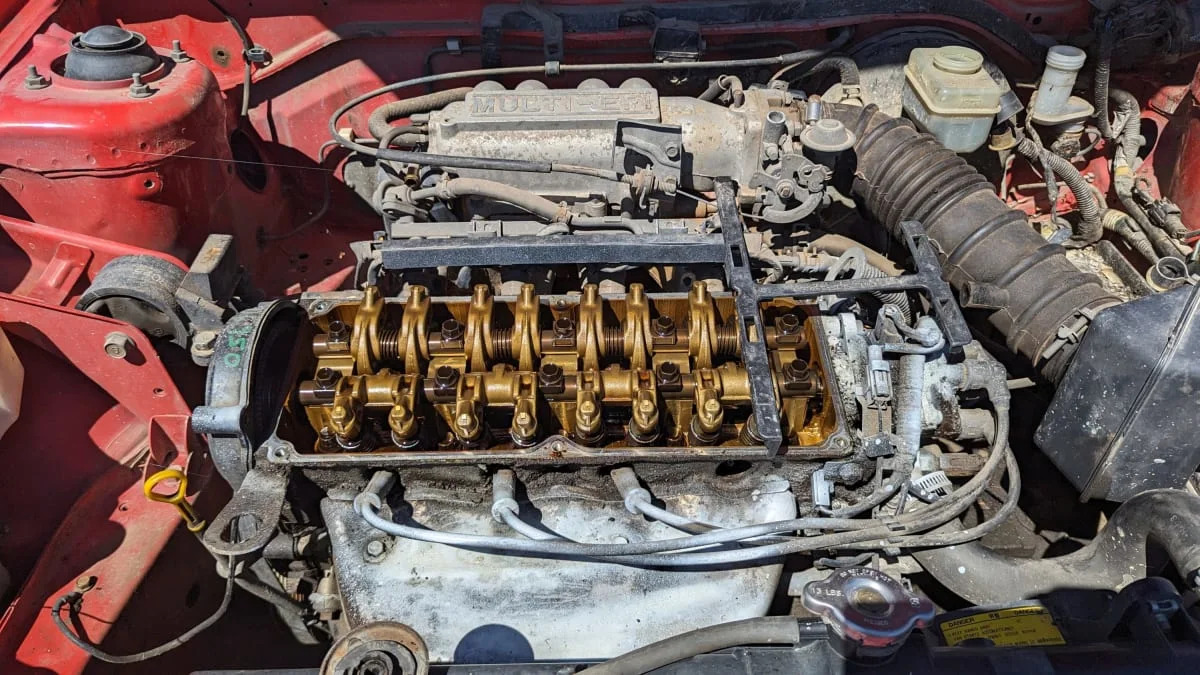
This SOHC 16-valve engine sure looks like a member of the Mazda B family, and that’s exactly what it is. Displacement is 1.8 liters, output was 125 horsepower and 108 pound-feet.
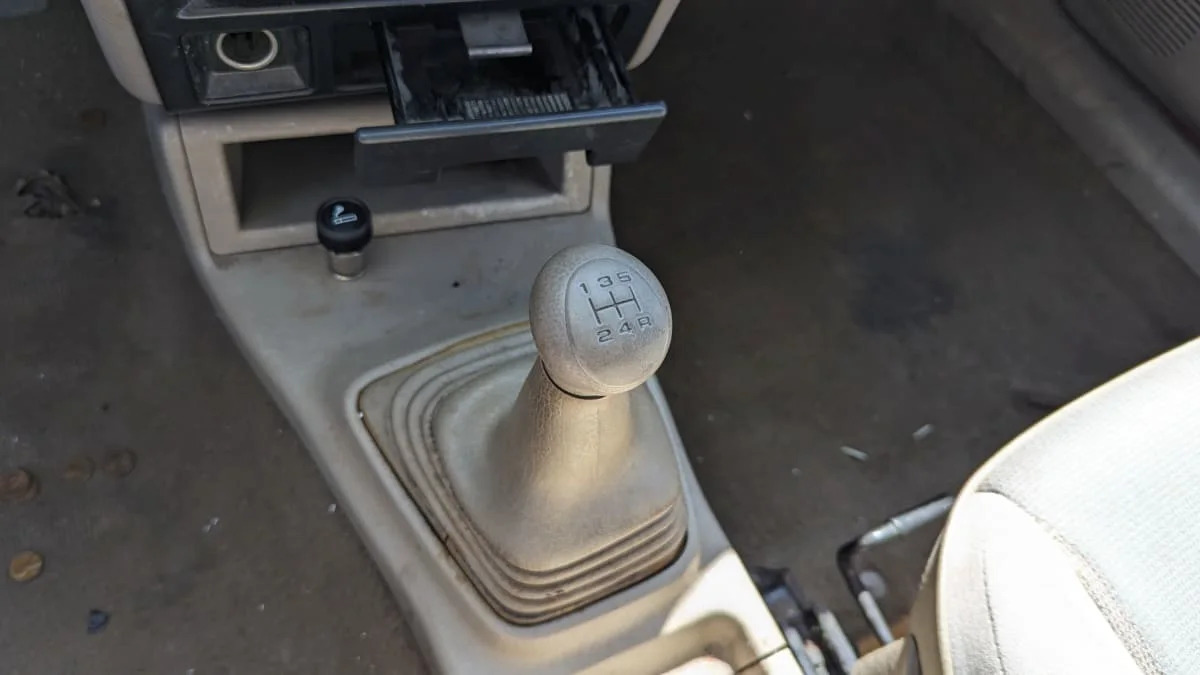
An automatic transmission added $950 ($1,982 today) to the cost of the 1995 Sephia, so the original purchaser of this car stuck with the base five-on-the-floor manual.
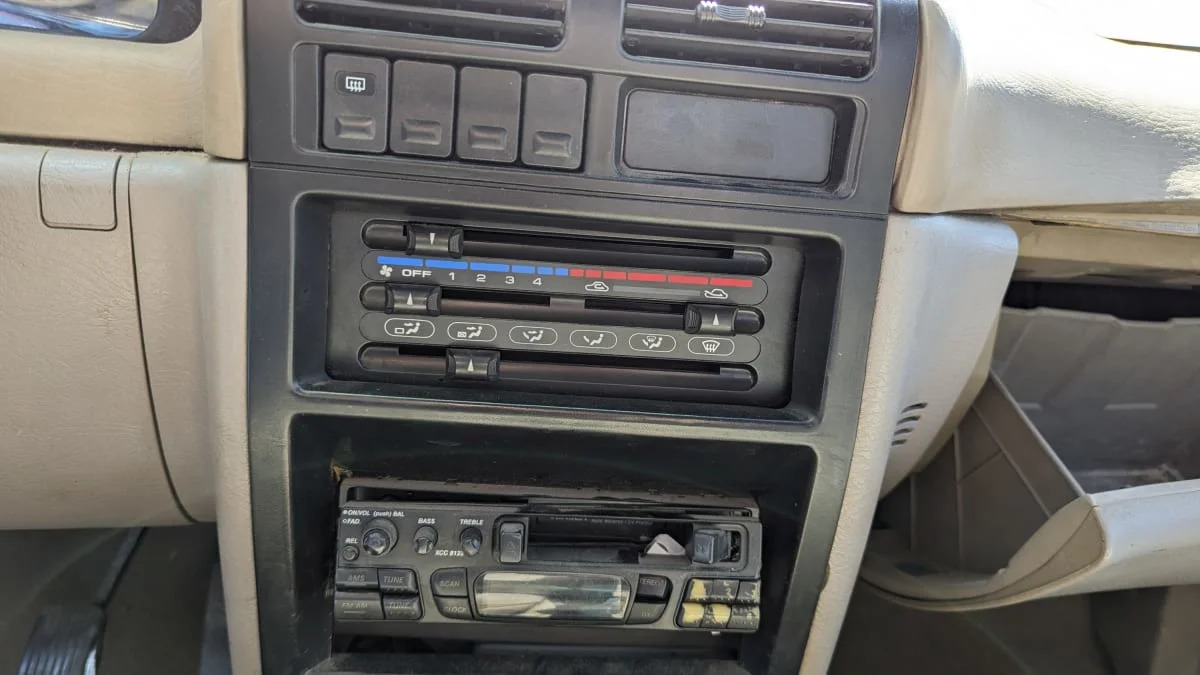
Air conditioning? Not for 850 bucks, thanks very much (that’s 1,773 of today’s bucks).
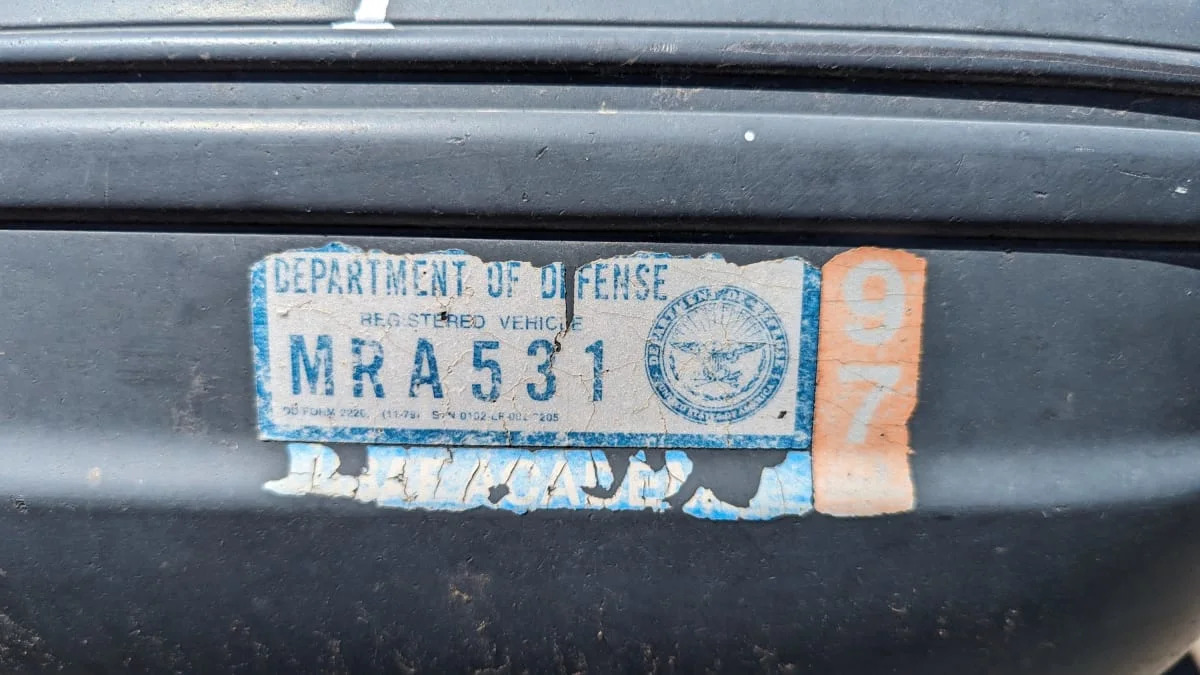
There’s a 1997 Air Force Academy parking sticker on the bumper, so it would seem that this car has lived all or most of its life in Colorado.
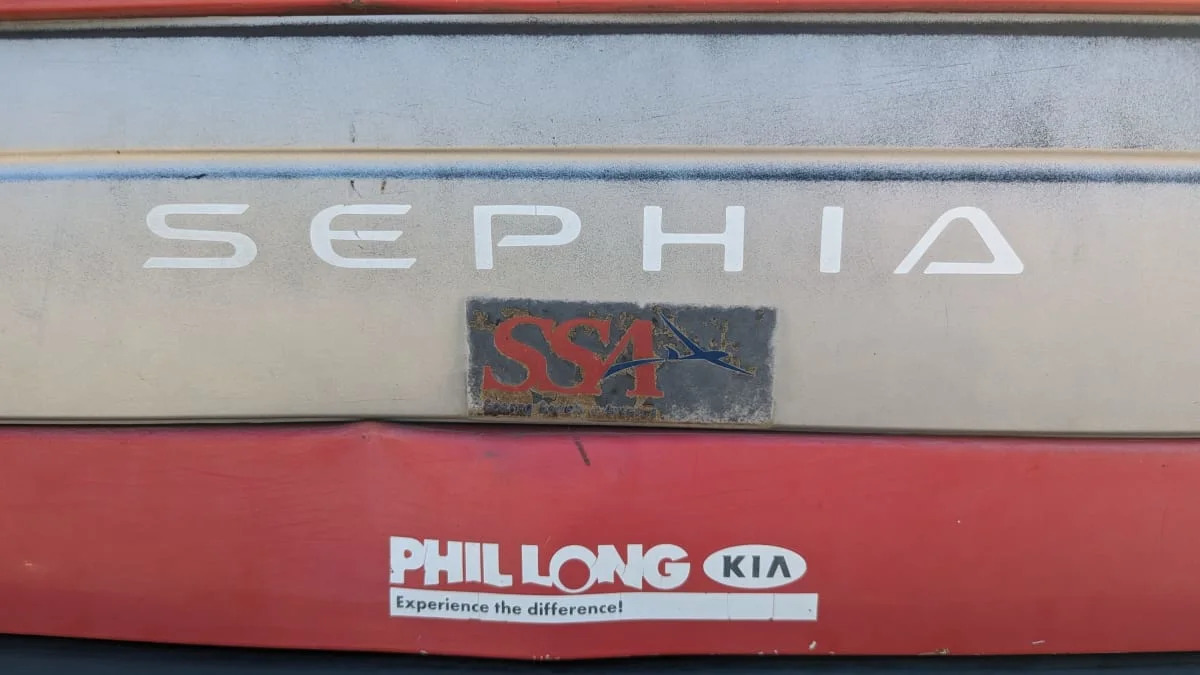
Phil Long Kia in Colorado Springs is still in business today.
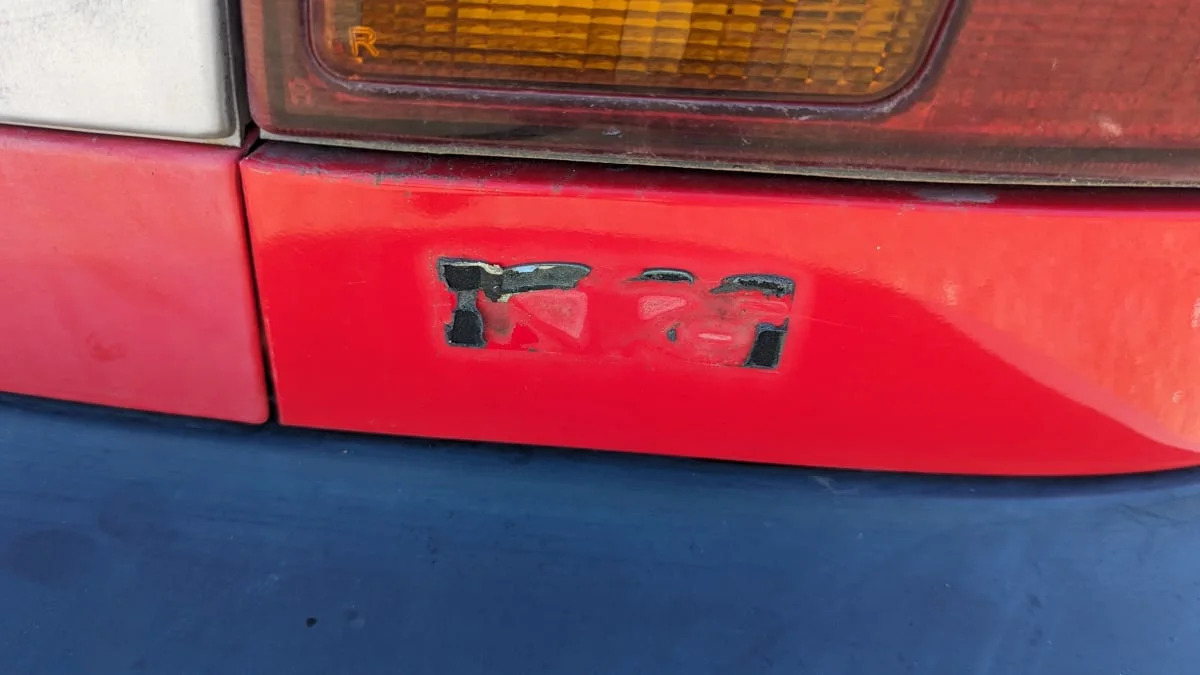
It’s not a gem in the sense that it was a great car (though the case can be made that it was a pretty good value for the money when it was new), but it’s a gem of automotive history for sure.
Why not take on the Honda Civic right off the bat? The cheapest possible Civic sedan for 1995 was the DX, which had an MSRP of $11,980 (about $24,992 today). Of course, 1990s Hondas tended to last for many, many, many, many miles, but it’s best to aim high when you’re a newcomer.
This commercial is a blatant ripoff (or homage, if you prefer) of the famous 1969 AMC Rebel “Driving School” ad, right down to the horn-rim glasses on the instructor.
The Sephia’s home-market TV commercials got screaming engines and macho voiceovers. Seh-PEE-yah!







